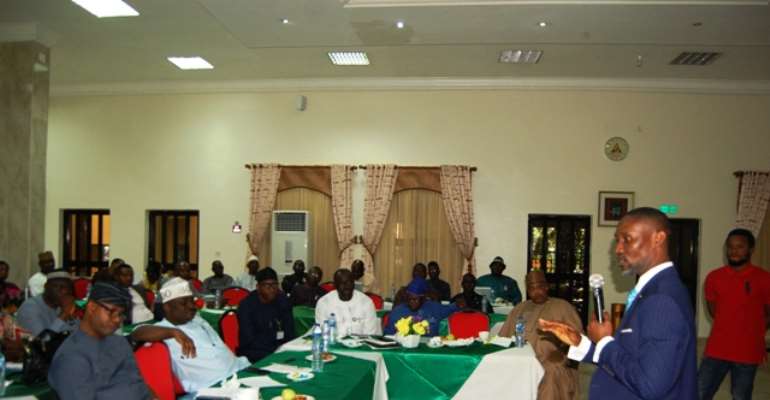National Assembly to resuscitate Audit Bill

The Senate and House of Representatives Public Account Committees have insisted that the Audit Bill that was passed in the 8th Assembly which President Muhammadu Buhari did not assent remains very sacrosanct and would be resuscitated by the 9th Assembly.
The Chairman, Public Accounts Committee of the Senate, Senator Matthew Urhoghide and his House of Representatives counterpart, Honourable Busayo Oluwole-Oke who co-chaired a session of stakeholders on the Audit Bill said the 9th National Assembly will breathe a new life into the Audit Bill and ensure its passage again.
Senator Urhoghide and Honourable Oluwole-Oke lamented that the nation’s current audit practice does not meet the global best practices and that necessary reforms that would empower and enable the office of the Auditor General of the Federation to function optimally and efficiently are imperative.
They spoke at a 3-day Stakeholders Consultative / Technical Session on the Audit Bill organised for members and staff of the Senate and House of Representatives Public Account Committees and the Office of the Auditor-General of the Federation (OAuGF) in Abuja, supported by PDF 11 and the DFID Funded Partnership to Engage, Reform and Learn (PERL).
The Head, Technical Support, Partnership to Engage, Reform and Learn (PERL) Engaged Citizens (EC), Mr John Mutu, who facilitated the session explained that it was aimed at finding a common solution to ensure that the audit bill succeeds in becoming a law.
Mutu explained that the main objective of the session is to provide a platform for the National Assembly's Public Account Committees (NASS PACs), the Office of the Auditor-General of the Federation (OAuGF) and the Presidency to reflect and review the Audit Bill so as to identify areas of concerns that that prevented the President from giving his assent to the bill.
Speaking further, Senator Urhoghide said that the nation would reap huge benefits if the Audit Bill becomes law as it would block revenue leakages and curtail corruption.
Urhoghide said “We have to ensure proper auditing of the spending of public money. If we strengthen the office of the Auditor-General, it will block leakages and we will save a lot of money and it this will also check corruption drastically".
Also, Honourao Oluwole-Oke said if the Bill becomes law, it would enable the Auditor General to carry out his duties very efficiently and effectively.
Oluwole-Oke said “Nigeria is a member of Comity of Nations and we have to work in line with the global best practices. Just imagine, look at the 2017 auditor’s report. Why should the Auditor General exonerate the same agency that the President queried?
He said the Audit Bill if passed and assented would help to curtail corruption in the country. “Unfortunately, the President withheld his assent even without giving reasons. Now the bill is dead constitutionally but we shall resuscitate it since our House rules give us provision to start from where we stopped in the 8th Assembly’.
Also speaking during the session, Senator Ibikunle Amosun and Senator Gabriel Suswam said necessary steps must be taken, including the audit law to eradicate corruption.
The National Team Leader, Engaged Citizens Pillar (ECP) of DFID’s Partnership to Engage Reform and Learn (PERL), Dr. Adiya Ode observed that the office of the Auditor General of the Federation plays a critical role in the fight against corruption which is one of the major agenda of President Buhari’s administration.
Dr. Adiya noted that if the government is really committed to fighting corruption, the audit law is a useful mechanism to achieve the objective. She said that having the audit law in place would strengthen the Auditor General to perform his functions well and also send signal to corrupt people that they would be exposed and prosecuted.
Various experts and scholars in their various presentations during the technical session, unanimously maintained that without the audit law in place, it might be very difficult to achieve thorough auditing and that the nation’s revenue would continue to leak particularly in the government agencies that generate revenue for the nation.
